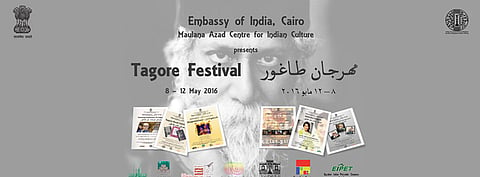The festival will conclude on May 12 with a Seminar on Contemporary Literature: "Tagore, Shawky & Mahfouz", which will feature Indian and Egyptian scholars and writers and will be conducted by the Supreme Council of Culture. The seminar will have two speakers from the Egypt and one speaker from India, noted historian and politician Sugata Bose. The Seminar will be moderated by Prof. Amal El Sabban, Secretary General, Supreme Council of Culture, Ministry of Culture, Egypt. The Seminar will be held at the Council Hall of the Supreme Council of Culture, Cairo Opera House.


